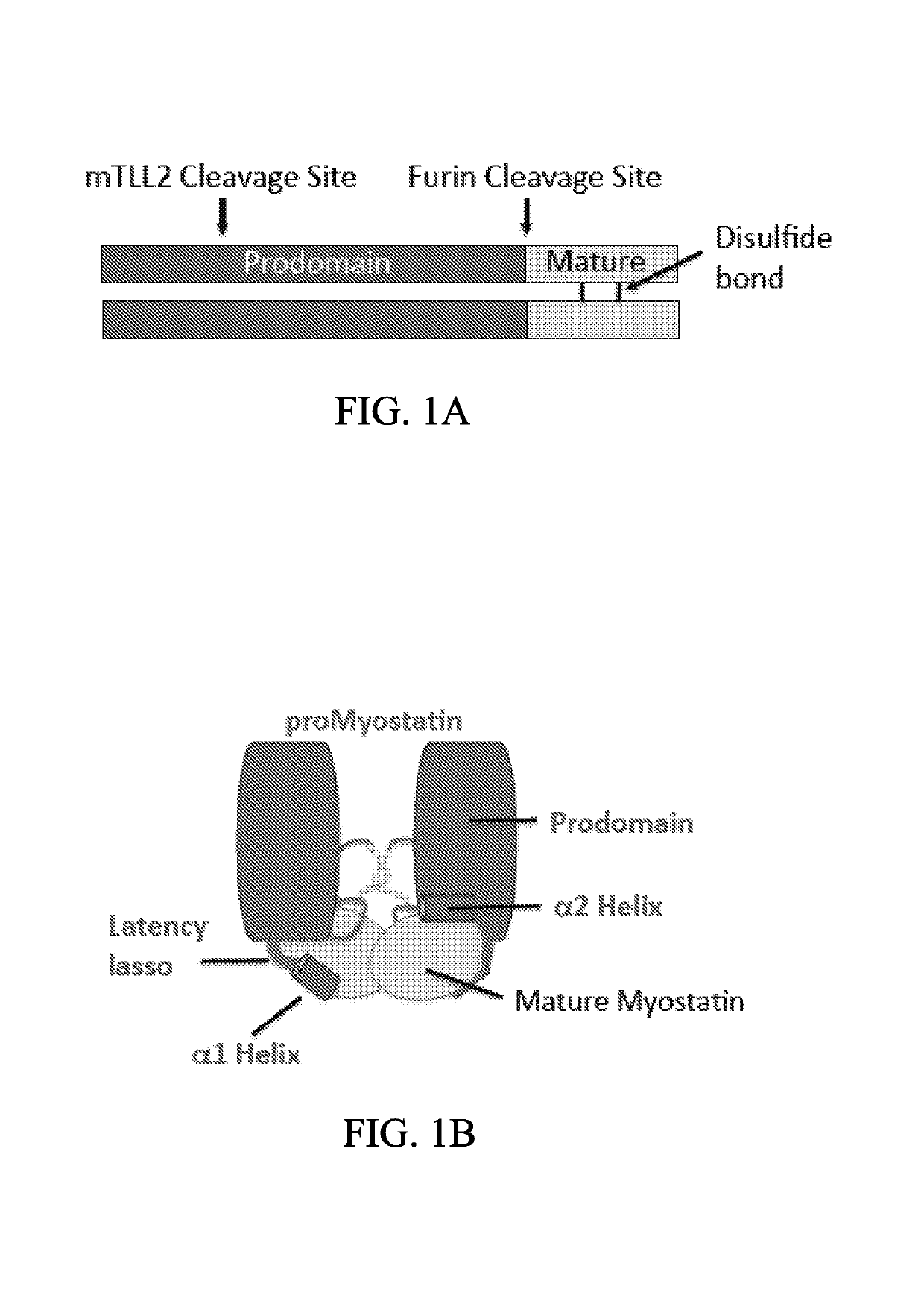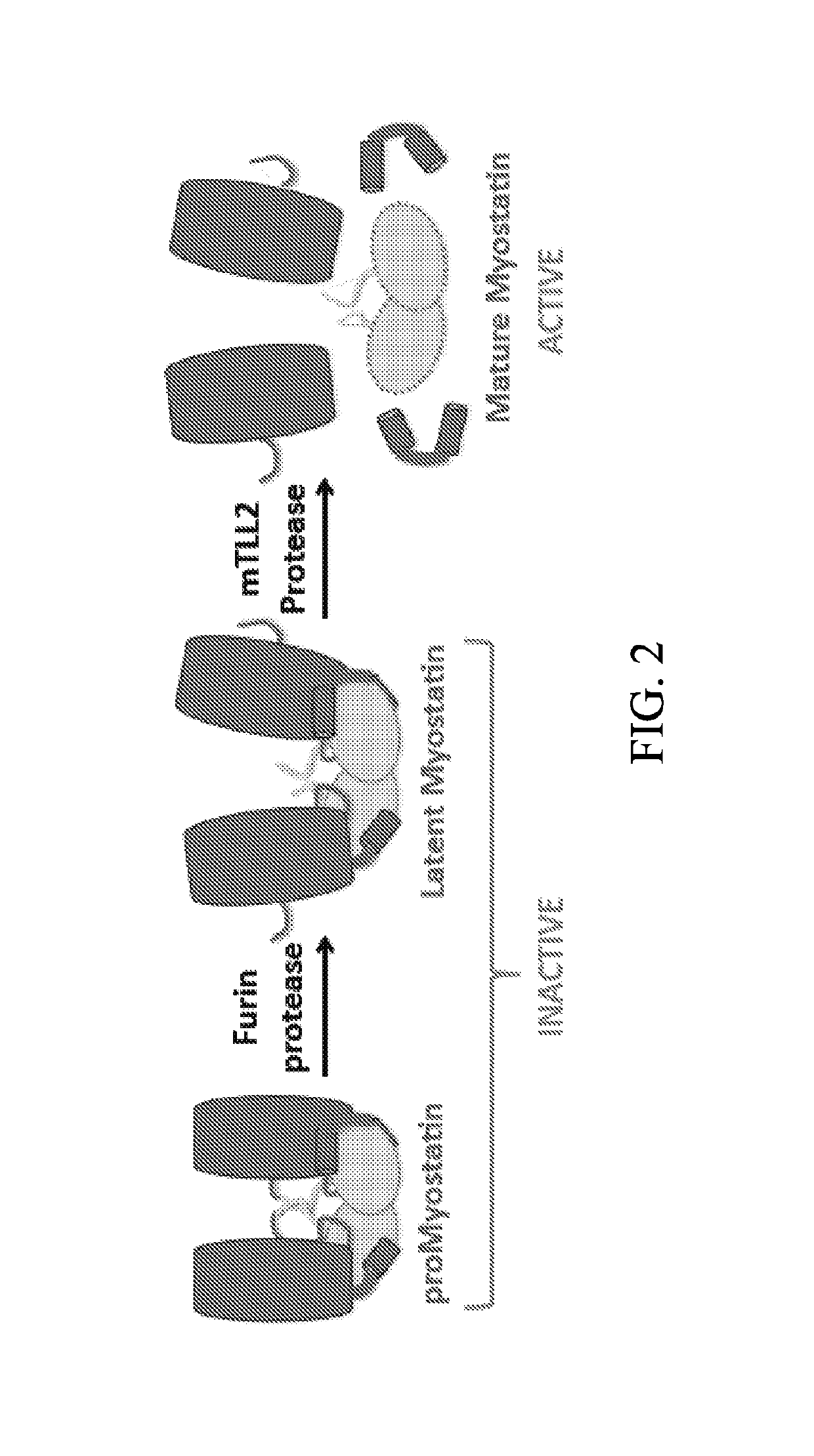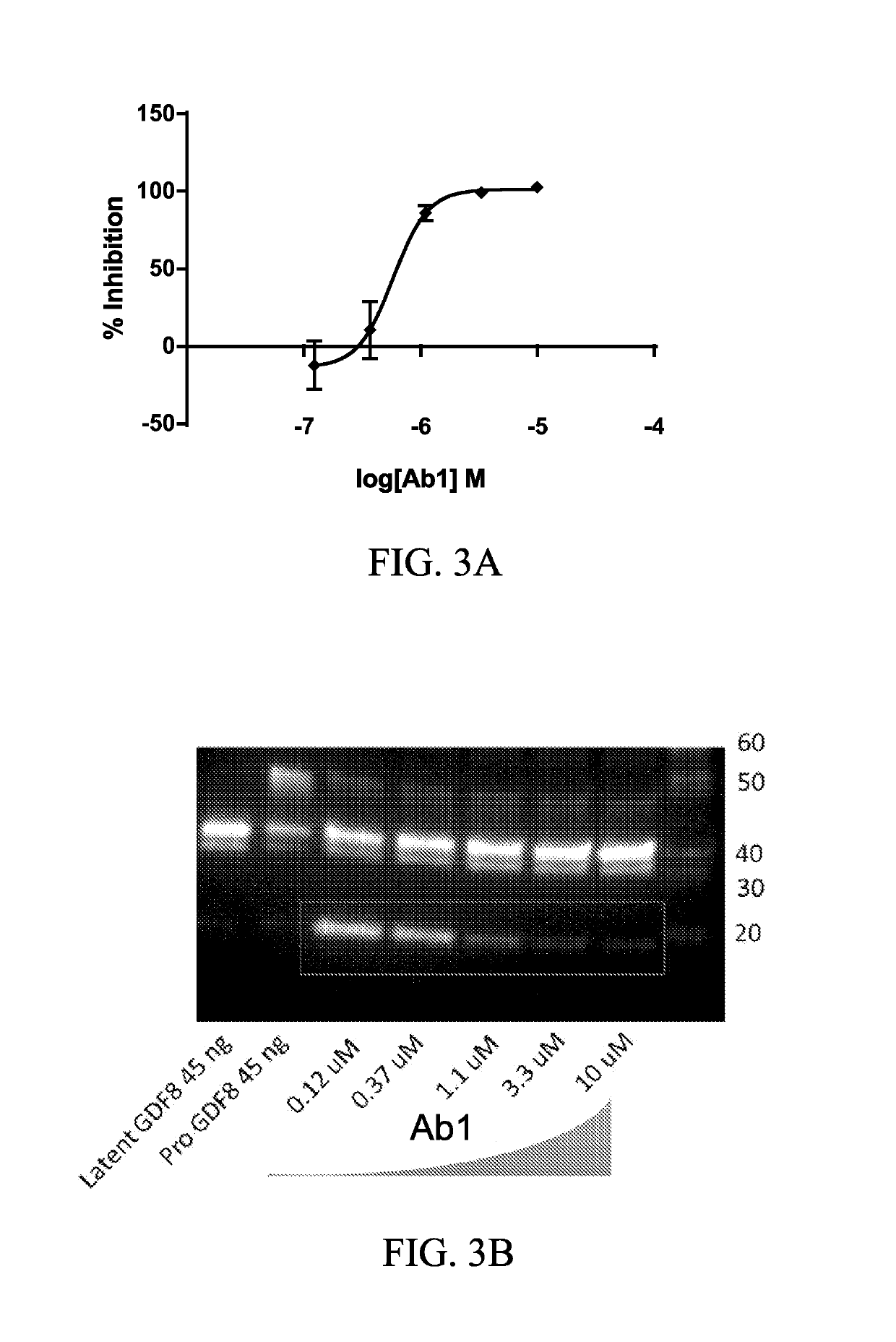Anti-pro/latent-myostatin antibodies and uses thereof
a technology of myostatin and anti-pro, which is applied in the field of modulators of growth factor activity, can solve problems such as increasing muscle size, and achieve the effects of preventing muscle atrophy, increasing muscle mass, and inhibiting myostatin signaling
- Summary
- Abstract
- Description
- Claims
- Application Information
AI Technical Summary
Benefits of technology
Problems solved by technology
Method used
Image
Examples
example 1
n and Selection of Antibodies
Antibody Summary
[0216]Ab2 is a fully human anti-pro / latent-Myostatin monoclonal antibody of the IgG4 / lambda isotype that binds to human pro- and latent-myostatin with high affinity (Kd=3420 pM by ForteBio BLI). The antibody is capable of inhibiting the proteolytic activation of pro / latent-Myostatin with IC50 values in the 0.5 micromolar range (which is at or near the limit of the assay). The theoretical molecular weight of the polypeptide is 144,736 Da and its theoretical pI is 6.7. Affinity optimization using antibody display was performed to identify higher affinity variants Ab4 and Ab6. The affinity optimized variants are similarly constructed on the human IgG4 / lambda isotype frameworks.
[0217]
TABLE 6Biochemical properties of candidateanti-Pro / latent-Myostatin antibodiesTheoretical MW(Da)CalculatedAntibodyAffinity (Octet) pM*aglycosylatedpIAb14760144809.86.9Ab23420144735.66.7Ab4472144661.76.7Ab6331144629.56.7
Platform and Identification of Parental Anti...
example 2
ogical Characterization
In Vitro Pharmacological Assays
[0244]A total of 24 optimized Ab1 variants were expressed and purified as IgG4 and assayed for improved binding and functional activity. The changes to these molecules included germlining mutations to the parental variable region, along with mutations in the CDRs which conferred increased binding to pro / latent-Myostatin in the affinity maturation screen (see Example 1).
[0245]The Ab1 variants were screened in several different ELISA-based assays, in which the binding to the proMyostatin and latent Myostatin proteins (human, murine, and cynomolgus) was re-assessed, along with a large screen of negative control proteins to verify that non-specific binding was not introduced as a result of the affinity maturation. Negative controls included GDF11 proteins (proGDF11, latent GDF11 and mature GDF11), TGFβ proteins, and Activin proteins (proActivin). Additionally, the antibodies were assessed for polyspecificity (which can lead to rapid ...
example 3
[0287]Ab2 is a humanized monoclonal antibody of the IgG4 subtype with Proline substituted for Serine at position 228. This generates an IgG1-like hinge sequence and minimizes the incomplete formation of inter-chain disulfide bridges which is characteristic of IgG4. The complete amino acid sequence of the heavy and light chains of Ab2 are shown below. The complementarity-determining regions (CDRs) are underlined. purple: N-linked glycosylation consensus sequence site; light blue: potential cleavage site; red: potential deamidation site; light green: potential isomerization site; Dark blue: potential methionine oxidation site; Bold: expected N-terminal pyroglutamic acid (FIGS. 21A-21B).
[0288]Molecular modeling of Ab1 identified several potential sites of post-translational modifications. Two asparagines in the light chain and seven asparagines in the heavy chain are susceptible to deamidation. Two of these residues are located within CDR regions of the heavy ch...
PUM
 Login to View More
Login to View More Abstract
Description
Claims
Application Information
 Login to View More
Login to View More - R&D
- Intellectual Property
- Life Sciences
- Materials
- Tech Scout
- Unparalleled Data Quality
- Higher Quality Content
- 60% Fewer Hallucinations
Browse by: Latest US Patents, China's latest patents, Technical Efficacy Thesaurus, Application Domain, Technology Topic, Popular Technical Reports.
© 2025 PatSnap. All rights reserved.Legal|Privacy policy|Modern Slavery Act Transparency Statement|Sitemap|About US| Contact US: help@patsnap.com



